
Exploring the Enchanting Mankon of Bamenda
Nestled in the heart of the Northwest region of Cameroon, Mankon in Bamenda is a vibrant cultural hub that offers a unique blend of tradition and modernity. Known for its rich heritage and welcoming atmosphere, Mankon is a place where history and culture come alive. Visitors can explore the Mankon Museum, which houses an impressive collection of traditional artifacts, masks, and royal regalia that tell the story of the Mankon people. The museum provides a deep insight into the customs and traditions that have shaped this community for centuries. The Mankon Palace, an architectural marvel, stands as a testament to the region's royal lineage. It is not just a residence but a symbol of cultural pride and historical significance. Walking through its corridors, one can almost hear the echoes of ancient rituals and ceremonies. The palace grounds also host annual festivals that draw crowds from all over, offering a colorful display of dances, music, and traditional attire. Surrounded by lush landscapes and scenic views, Mankon is also a gateway to some of the most breathtaking natural attractions in the region. The nearby Bamenda Highlands offer a perfect backdrop for hiking and nature walks. The fresh mountain air and the panoramic views make it a haven for nature lovers. Whether you are a history buff, a culture enthusiast, or an adventure seeker, Mankon in Bamenda promises an unforgettable experience.
Local tips in Mankon (Bamenda)
- Visit the Mankon Museum early in the morning to avoid crowds and get the best experience.
- Respect local customs and traditions, especially when visiting the Mankon Palace.
- Wear comfortable shoes if you plan to hike in the Bamenda Highlands.
- Try the local cuisine at nearby markets for an authentic taste of Mankon.
- Attend a local festival if your visit coincides with one; it's a great way to experience the culture.
Exploring the Enchanting Mankon of Bamenda
Nestled in the heart of the Northwest region of Cameroon, Mankon in Bamenda is a vibrant cultural hub that offers a unique blend of tradition and modernity. Known for its rich heritage and welcoming atmosphere, Mankon is a place where history and culture come alive. Visitors can explore the Mankon Museum, which houses an impressive collection of traditional artifacts, masks, and royal regalia that tell the story of the Mankon people. The museum provides a deep insight into the customs and traditions that have shaped this community for centuries. The Mankon Palace, an architectural marvel, stands as a testament to the region's royal lineage. It is not just a residence but a symbol of cultural pride and historical significance. Walking through its corridors, one can almost hear the echoes of ancient rituals and ceremonies. The palace grounds also host annual festivals that draw crowds from all over, offering a colorful display of dances, music, and traditional attire. Surrounded by lush landscapes and scenic views, Mankon is also a gateway to some of the most breathtaking natural attractions in the region. The nearby Bamenda Highlands offer a perfect backdrop for hiking and nature walks. The fresh mountain air and the panoramic views make it a haven for nature lovers. Whether you are a history buff, a culture enthusiast, or an adventure seeker, Mankon in Bamenda promises an unforgettable experience.
When is the best time to go to Mankon (Bamenda)?
Iconic landmarks you can’t miss
Nkwen Fon's Palace
Discover the rich cultural heritage of the Nkwen people at the Nkwen Fon's Palace in Bamenda, Cameroon. A living museum of tradition.
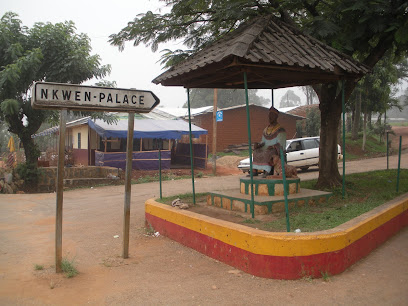
Mile 4 park
Escape to the tranquility of Mile 4 Park in Bamenda, a perfect blend of nature, community, and relaxation in the heart of the city.
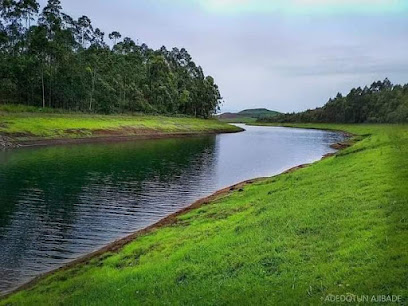
Mankon Museum
Discover the rich cultural heritage of the Mankon people at the Mankon Museum in Bamenda, Cameroon.
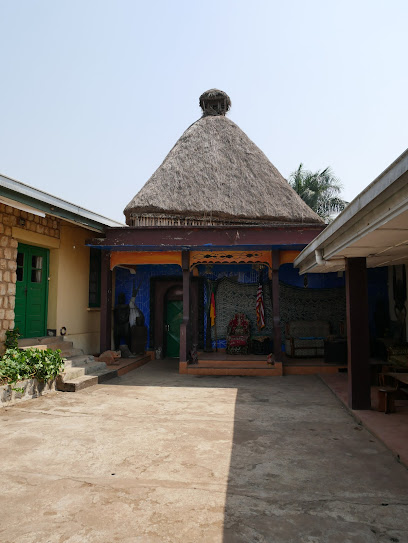
PresCraft
Discover authentic Cameroonian handicrafts at PresCraft, supporting local artisans and preserving cultural heritage in Bamenda.
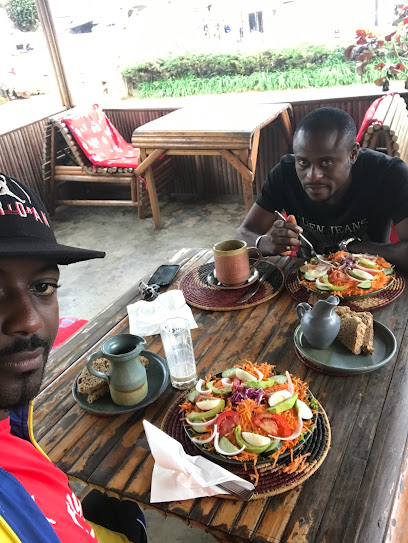
Presbyterian Church Mbomassa
Discover spiritual harmony and community spirit at Presbyterian Church Mbomassa in Bamenda, Cameroon.
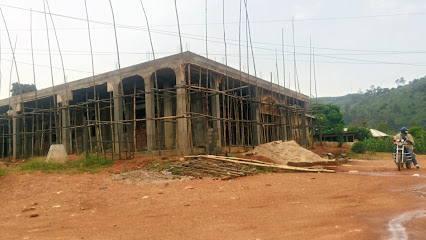
Presbyterian Church Abangoh
Discover spiritual solace and architectural beauty at Presbyterian Church Abangoh, a cultural landmark in the heart of Bamenda, Cameroon.
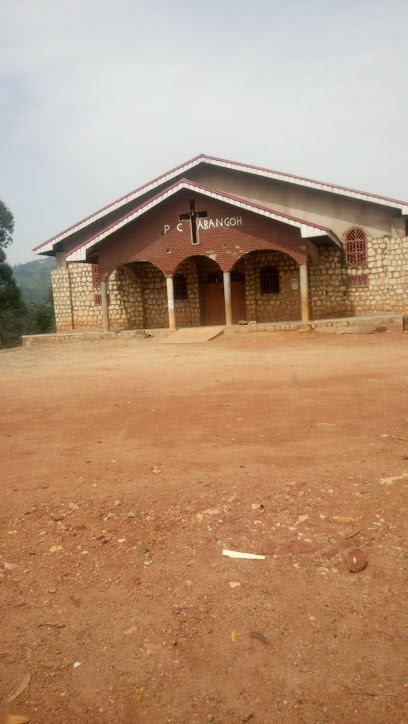
Charifa Republic
Experience blissful pampering at Charifa Republic, the ultimate beauty salon in Bamenda, where relaxation meets rejuvenation for every traveler.
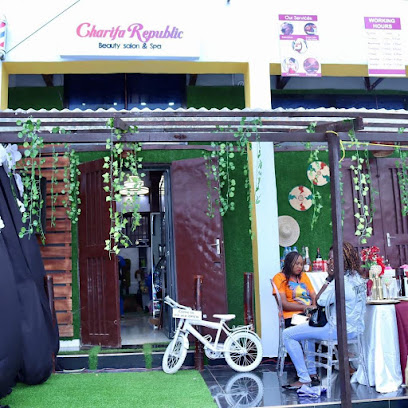
Presbyterian Church Musang
Discover spiritual richness at Presbyterian Church Musang in Bamenda, where faith, community, and architectural beauty converge.
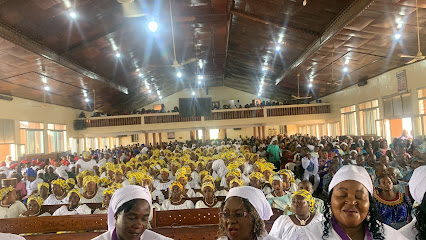
Presbyterian Youth Centre
Discover spiritual growth and community engagement at the Presbyterian Youth Centre in Bamenda, a cultural and serene landmark in Cameroon.
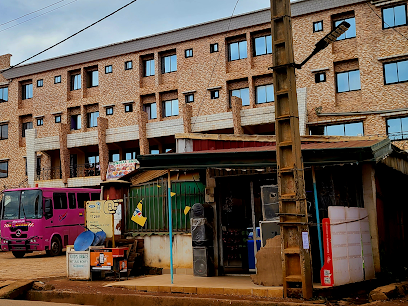
Mantohbang
Discover the cultural heart of Bamenda at Mantohbang Museum, showcasing the rich heritage and artistry of the Bamenda Grassfields.
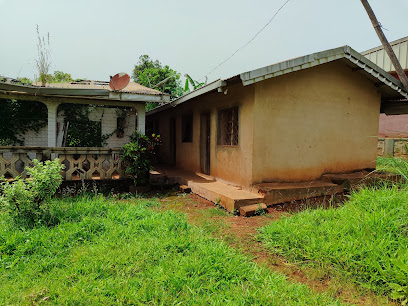
Bamenda
Discover the architectural beauty and cultural significance of the Bamenda Central Mosque, a serene landmark in the heart of Old Bamenda.

Mankon
Discover Mankon, Bamenda: A vibrant hub of culture, history, and scenic beauty in the heart of Cameroon's Northwest Region. Explore palaces, museums, and markets.

Unmissable attractions to see
Chutes de la Métché
Explore the stunning Chutes de la Méché, a natural paradise in Cameroon with breathtaking waterfalls and scenic beauty that captivates every traveler.
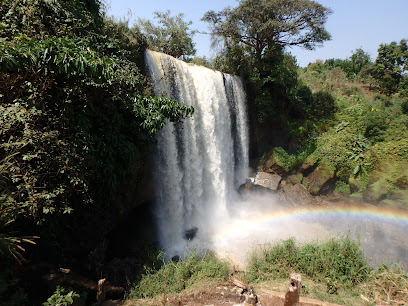
I love my country Cameroon round about
Explore the vibrant I Love My Country Cameroon Roundabout - a cultural landmark in Yaoundé that embodies national pride and local hospitality.
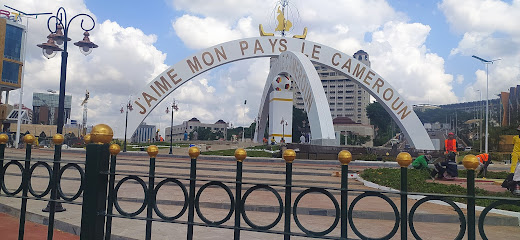
Mile 4 park
Experience the serene beauty and vibrant culture of Bamenda at Mile 4 Park - a perfect blend of nature and local charm.
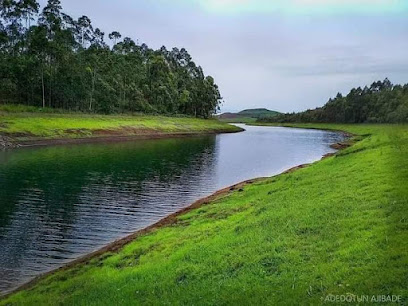
Mankon Museum
Discover the vibrant culture and history at Mankon Museum, a must-visit destination for travelers exploring local heritage and artistry.
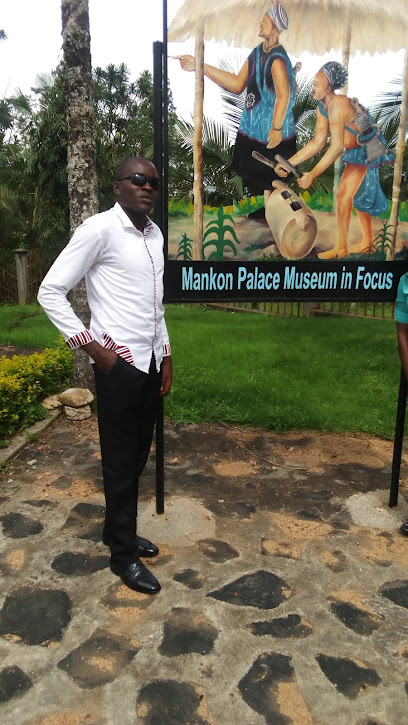
Mantohbang
Discover the cultural richness of Bamenda at Mantohbang Museum, a must-visit for history lovers and curious travelers alike.
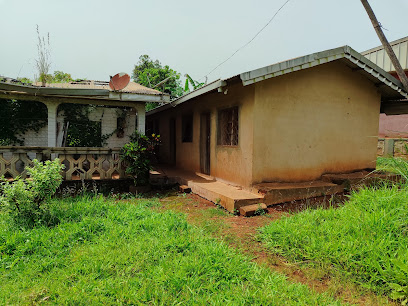
edge company
Explore the architectural wonders of Edge Company in Bamenda, where craftsmanship meets cultural heritage in a vibrant tourist attraction.

C-bend nature park
Discover the tranquil beauty of C-Bend Nature Park in Bamenda, a serene escape for nature lovers and adventure seekers alike.
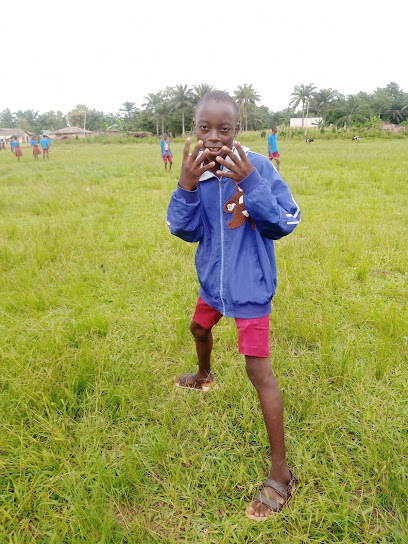
Essential places to dine
Dreamland Restaurant
Experience authentic Cameroonian flavors at Dreamland Restaurant in Bamenda, where every meal is a delightful celebration of taste.
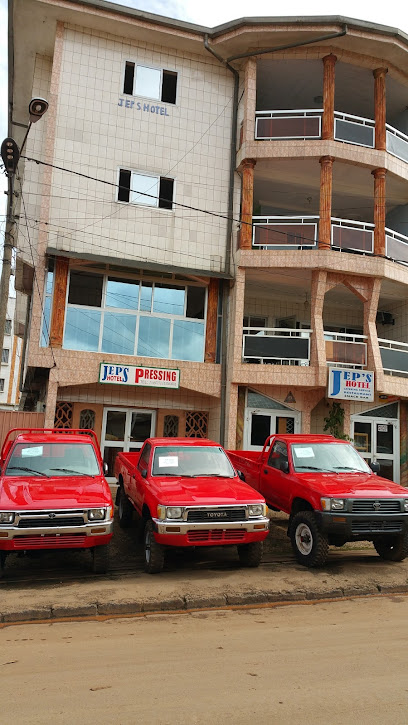
Chenjo's Grill
Discover the flavors of Bamenda at Chenjo's Grill - where local cuisine meets a vibrant dining experience.
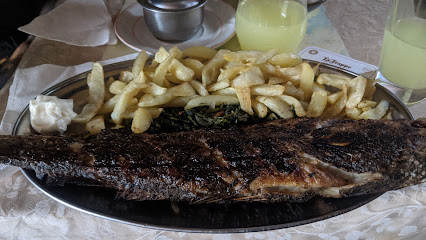
Ma Eli's Eating Spot
Discover authentic Cameroonian cuisine at Ma Eli's Eating Spot in Bamenda - a true culinary experience for every traveler.
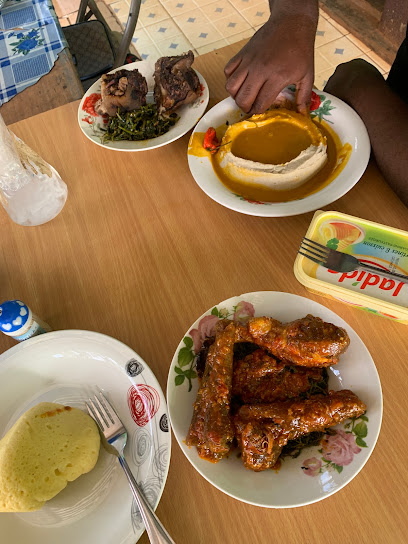
Blackrose Luxe Restaurant
Experience culinary excellence at Blackrose Luxe Restaurant in Bamenda, where local traditions meet international flavors for an unforgettable dining adventure.
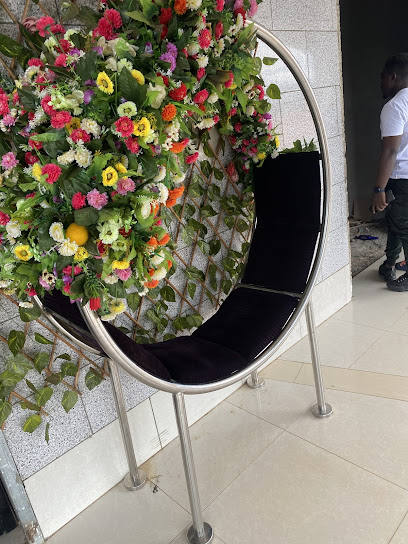
New Century Restaurant
Discover authentic Cameroonian flavors at New Century Restaurant in Bamenda – where local meets global in a delightful dining experience.

ALIZANE RESTAURANT
Discover authentic Cameroonian flavors at Alizane Restaurant in Bamenda - where every dish tells a story.
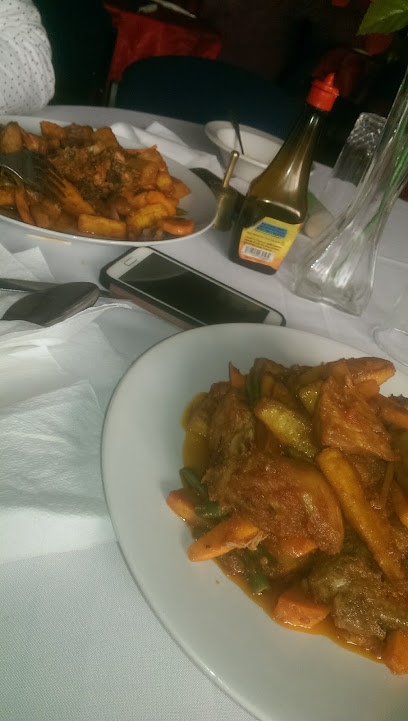
Milano Restaurant
Discover authentic Cameroonian cuisine at Milano Restaurant in Bamenda – where flavor meets tradition in every bite.

Keto Restaurant
Discover the flavors of Bamenda at Keto Restaurant – where healthy meets delicious in every bite.

T on T $ Grill
Discover the authentic taste of Cameroon at T on T $ Grill – where mouth-watering barbecue meets warm hospitality in Bamenda.
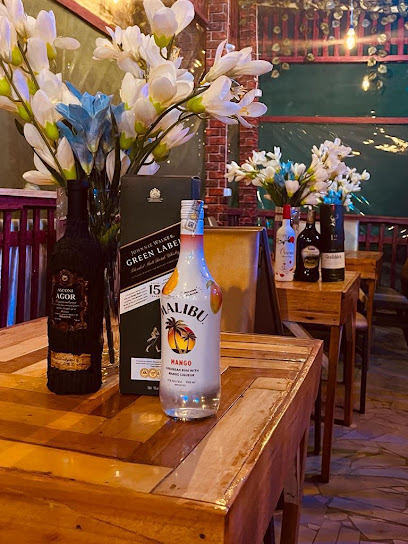
Princess Restaurant
Experience authentic Cameroonian cuisine at Princess Restaurant in Bamenda - where local flavors meet warm hospitality.
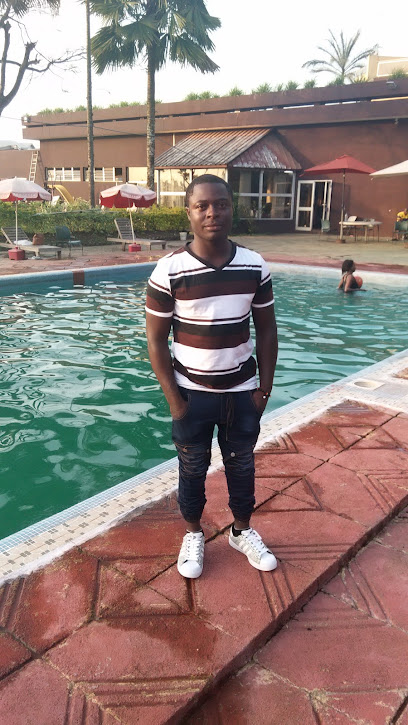
OPEN HEAVENS RESTAURANT
Experience authentic African cuisine at Open Heavens Restaurant in Bamenda - where every dish tells a story of tradition and flavor.

City grill
Discover authentic Cameroonian flavors at City Grill in Bamenda – where every meal is a celebration of local culture.
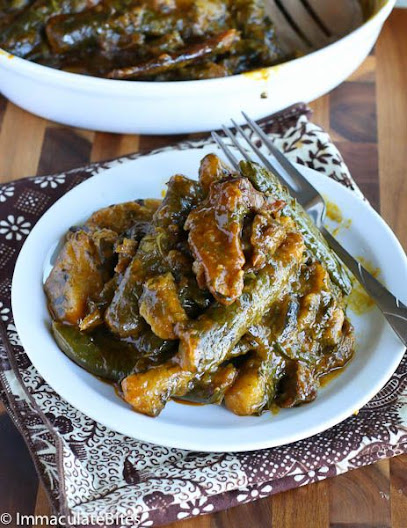
Hot and Tasty Restaurant
Experience authentic Cameroonian cuisine at Hot and Tasty Restaurant in Bamenda - where every meal tells a story.
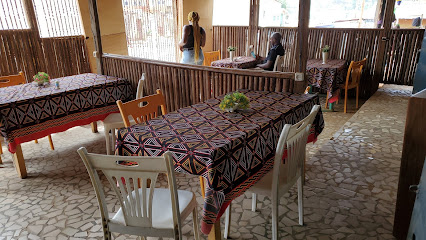
Millennium Restaurant
Experience authentic Cameroonian cuisine at Millennium Restaurant in Bamenda, where every meal is a celebration of local flavors and hospitality.
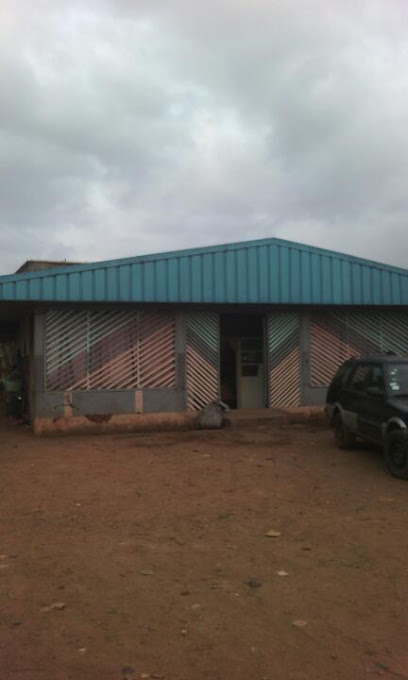
Yumee Restaurant
Experience authentic Cameroonian flavors at Yumee Restaurant in Bamenda - where every meal tells a story.
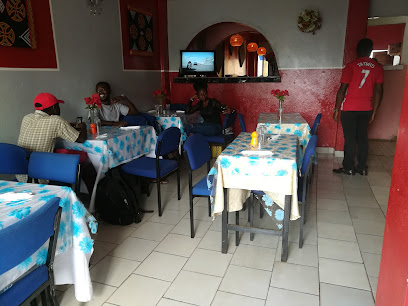
Markets, malls and hidden boutiques
Bamenda Main Market
Explore Bamenda Main Market: A vibrant marketplace showcasing local culture, crafts, and cuisine in the heart of Cameroon.
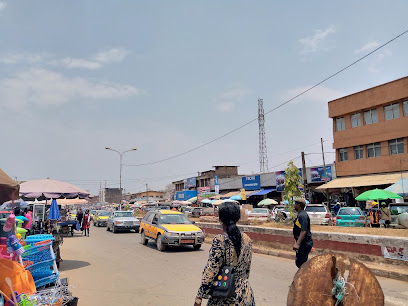
Njeiforbi Supermarket/ Bakery
Explore Njeiforbi Supermarket/Bakery in Bamenda for an authentic taste of local culture and delightful baked goods.
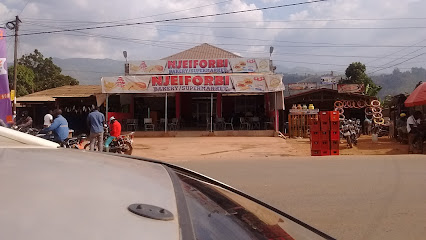
Bambui Market
Immerse yourself in the local culture at Bambui Market, a vibrant hub for fresh produce, crafts, and authentic Cameroonian cuisine.
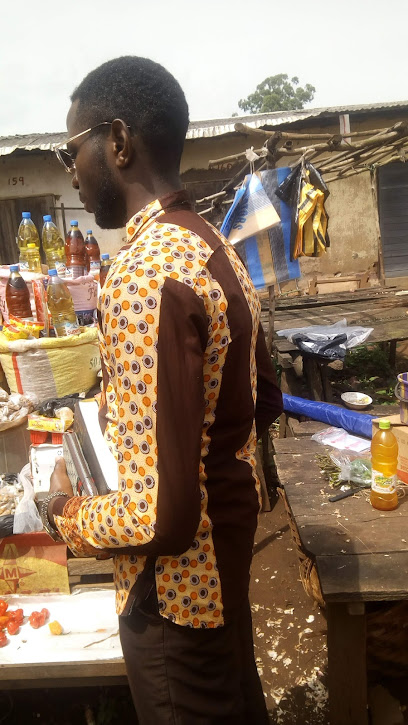
Oscar Shop Bamenda
Explore Oscar Shop Bamenda for a unique blend of local flavors and essential shopping in the heart of Cameroon.
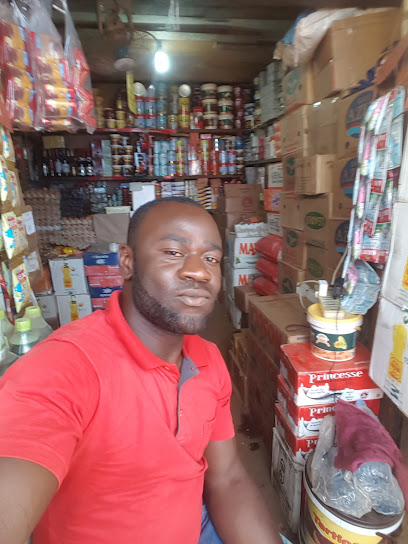
PresCraft
Discover the essence of Bamenda shopping at PresCraft, where local crafts and vibrant culture meet for an unforgettable experience.
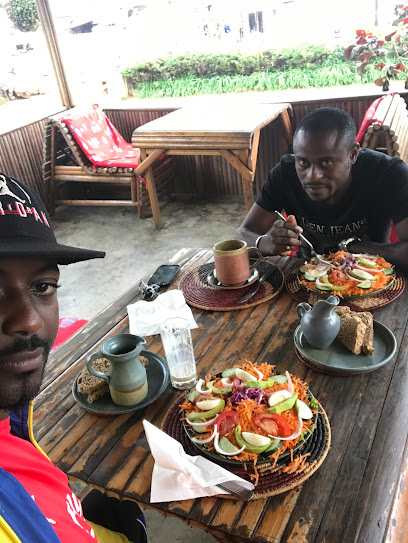
Building construction management
Discover a well-stocked pharmacy in Bamenda offering essential health products and expert assistance for travelers' medical needs.
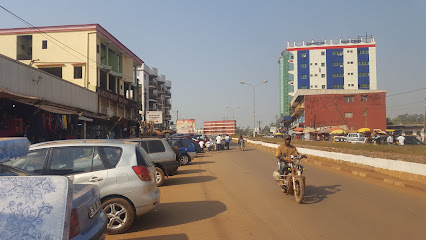
City Chemist
Explore City Chemist, a vibrant shopping mall in Bamenda, offering a rich selection of local products and an engaging shopping experience.
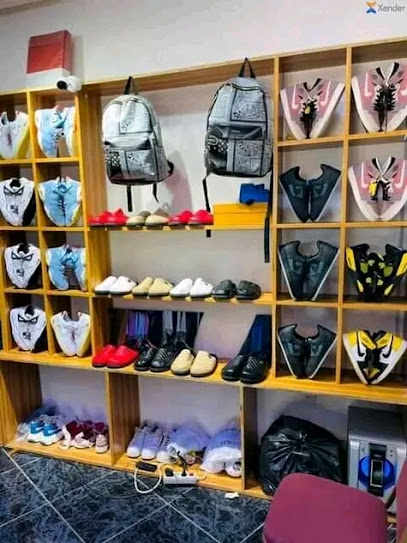
MTN MOBILE MONEY POS (NKAMNYA_NDR)
Discover convenient financial services at MTN Mobile Money POS in Bamenda, ensuring a smooth travel experience with mobile money solutions.
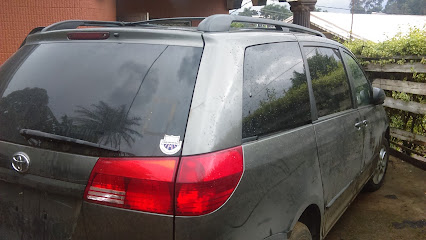
Mankon Fon's Palace
Explore Mankon Fon's Palace, a cultural gem showcasing the rich heritage and traditions of the Mankon people in Cameroon.
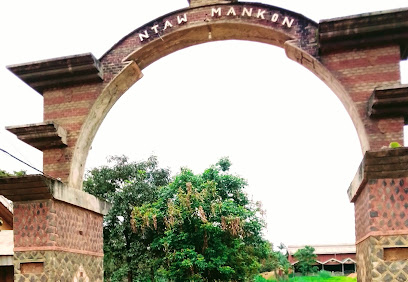
Amen Pharmacy
Explore Bamenda with peace of mind at Amen Pharmacy, your go-to place for health essentials in the heart of the city.
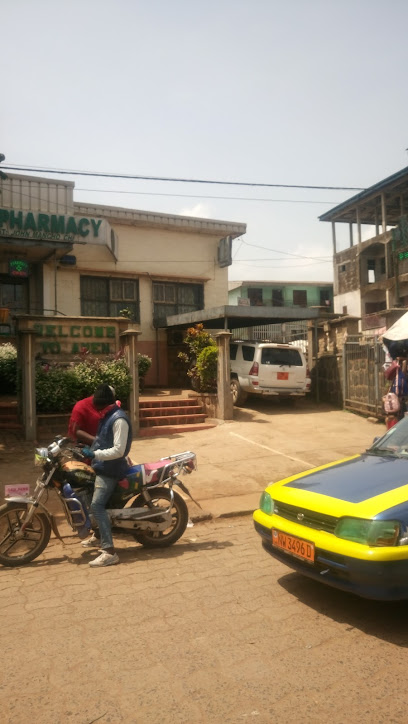
SWAGTURY SHOP BAMENDA
Explore Bamenda’s fashion scene at Swagtury Shop, where local style meets trendy clothing and unique accessories.
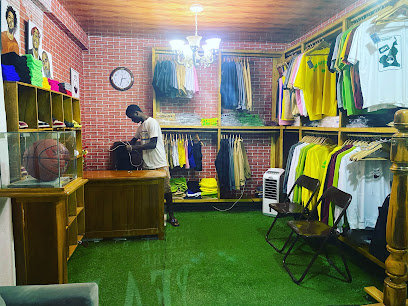
Mr All-in-one
Discover a world of mobile accessories at Mr All-in-one in Bamenda, where quality meets variety for an enhanced tech experience.
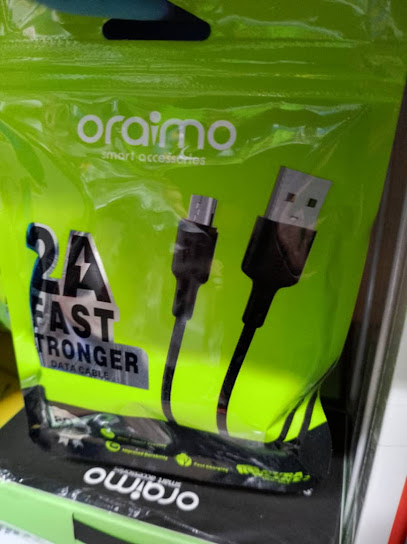
Ntambeng Mankon king Boris Avenue
Explore the vibrant home goods store at Ntambeng Mankon King Boris Avenue, where local craftsmanship meets modern design in We, Cameroon.

Marché A de Bafoussam
Explore the heart of Bafoussam at Marché A de Bafoussam, a vibrant marketplace filled with local products and cultural experiences.
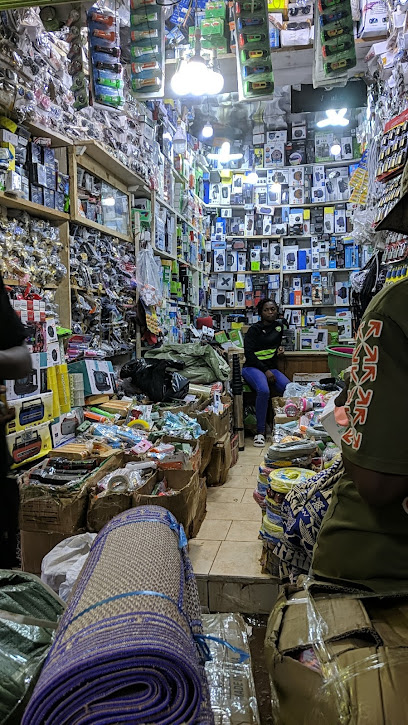
Beatrice Babies Shopping center
Explore Beatrice Babies Shopping Center in Bamenda for stylish baby clothing and a delightful shopping experience tailored for families.
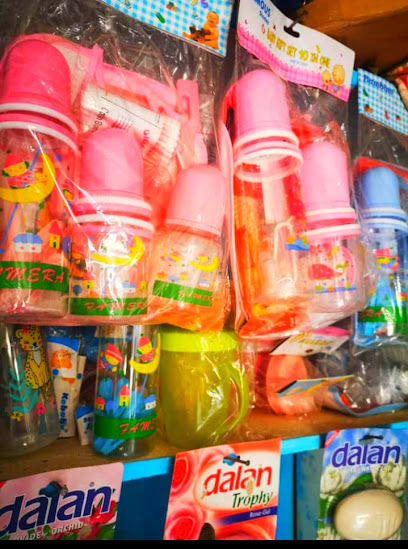
Essential bars & hidden hideouts
Awesome Quiet Bar
Discover relaxation at Awesome Quiet Bar, a serene sanctuary in Bamenda offering diverse drinks and a cozy atmosphere for tourists.
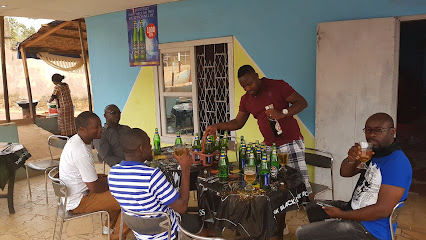
Candy Shop
Explore Bamenda's Candy Shop for a delightful selection of sweets, chocolates, and confections in a charming atmosphere perfect for all ages.
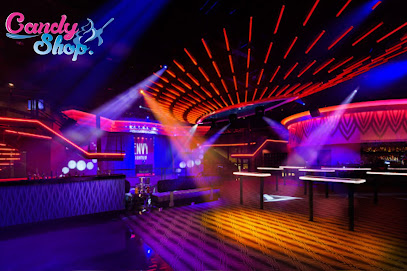
Behindche Tap
Discover the vibrant nightlife of Bamenda at Behindche Tap, where local flavors meet a welcoming atmosphere.
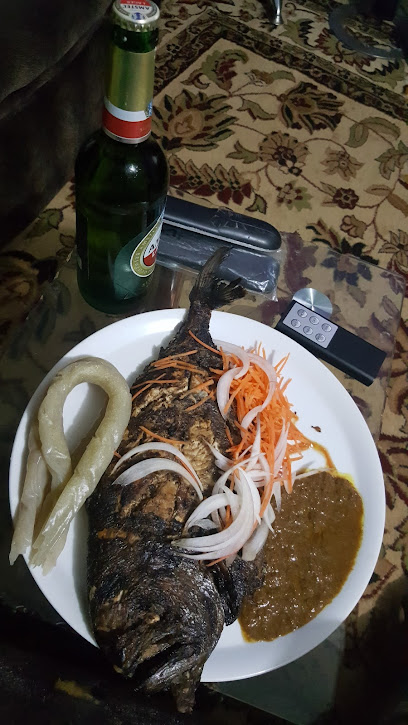
Blue Bar Jonction
Discover the vibrant charm of Blue Bar Jonction in Bamenda, a perfect spot for relaxation and socializing with locals and travelers alike.
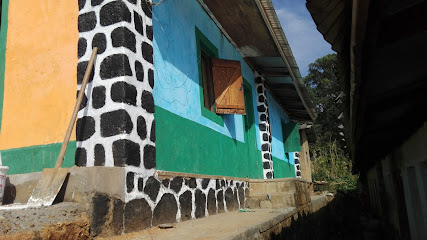
PLAZA PLUS
Discover the lively atmosphere and refreshing drinks at PLAZA PLUS, the heart of Bamenda's nightlife experience.
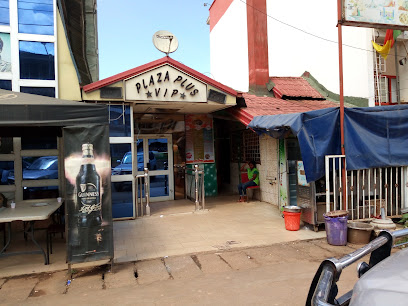
Ashanti
Experience Bamenda's vibrant nightlife at Ashanti, a lively bar offering a delightful mix of local and international drinks in a welcoming atmosphere.
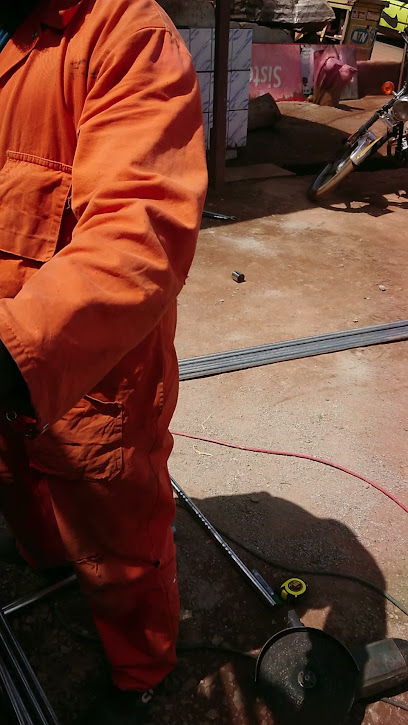
Amigos Bar And Resturant Achu
Experience the vibrant local culture at Amigos Bar and Restaurant in Bamenda, where delicious food and refreshing drinks meet a delightful atmosphere.
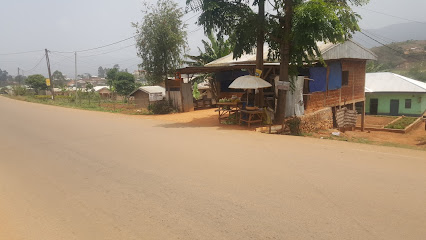
Le Biberon
Discover the vibrant atmosphere of Le Biberon, Bamenda's premier bar, where friendly service meets a stylish ambiance and a diverse drink menu.
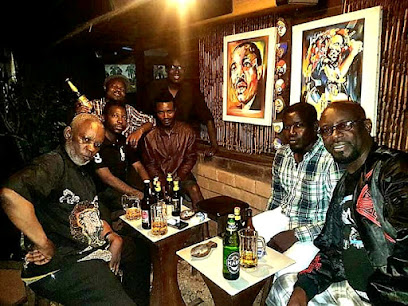
Amah's Lounge
Experience the vibrant nightlife at Amah's Lounge in Bamenda, where local culture meets a friendly atmosphere and refreshing drinks.
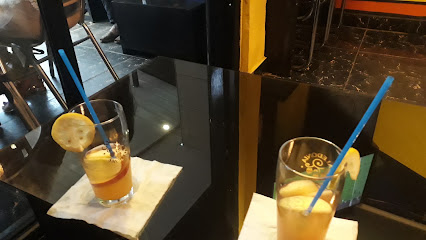
Watson Bar
Discover the lively spirit of Bamenda at Watson Bar, where great drinks and vibrant local culture come together for an unforgettable experience.
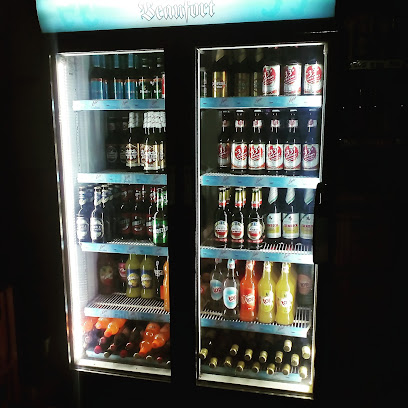
Ngwane's Lounge
Experience the vibrant nightlife of Bamenda at Ngwane's Lounge, where refreshing drinks and local culture come together in a lively atmosphere.
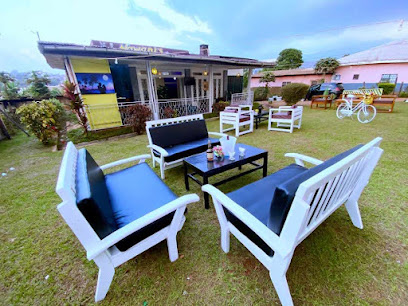
Blue moon upstation
Discover the lively charm of Blue Moon Upstation, a vibrant bar in Bamenda where locals and tourists mingle over drinks and stories.
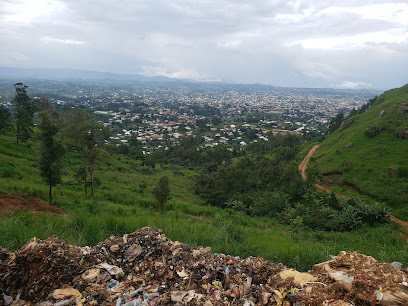
Jusue Bar
Discover the vibrant nightlife at Jusue Bar, a must-visit spot in Bamenda for an authentic local experience.

Akebe Bar
Discover the heart of Bamenda's nightlife at Akebe Bar, where local culture meets a vibrant atmosphere and friendly faces.

Local Phrases about Mankon (Bamenda)
-
- HelloNdolo
[N-doh-loh] - GoodbyeAdieu
[Ah-dyoo] - YesEeh
[Eh] - NoAa
[Ah] - Please/You're welcomeKilo
[Kee-loh] - Thank youSeh
[Seh] - Excuse me/SorryEh sia
[Eh see-ah] - How are you?O boh?
[Oh boh?] - Fine. And you?Bele. Na yuu?
[Beh-leh. Nah you?] - Do you speak English?O gos Englis?
[Oh gohs Eng-lees?] - I don't understandAa noh sabi
[Ah noh sah-bee]
- HelloNdolo
-
- I'd like to see the menu, pleaseNa moh wuot di menu, kilo
[Nah moh woh-di menu, kee-loh] - I don't eat meatAa noh chop nyama
[Ah noh chohp nyah-mah] - Cheers!Kem
[Kehm] - I would like to pay, pleaseNa moh fai, kilo
[Nah moh fai, kee-loh]
- I'd like to see the menu, pleaseNa moh wuot di menu, kilo
-
- Help!Boh
[Boh] - Go away!Waka
[Wah-kah] - Call the Police!Fon Polis
[Fohn Po-lees] - Call a doctor!Fon doktor
[Fohn dohk-tohr] - I'm lostAa loss
[Ah loss] - I'm illAa sik
[Ah seek]
- Help!Boh
-
- I'd like to buy...Na moh jang...
[Nah moh jah-ng...] - I'm just lookingNa jang soh
[Nah jah-ng soh] - How much is it?Eh moh ndem?
[Eh moh ndehm?] - That's too expensiveEh deh cost na plenti
[Eh deh cost nah plehn-tee] - Can you lower the price?O goh kam price?
[Oh goh kahm price?]
- I'd like to buy...Na moh jang...
-
- What time is it?Eh tim na?
[Eh teem nah?] - It's one o'clockNa wan
[Nah wahn] - Half past (10)Na hap pas
[Nah hahp pahs] - MorningMbot
[M-boht] - AfternoonMbeuh
[M-byuh] - EveningNtah
[N-tah] - YesterdayDeh
[Deh] - TodayNa
[Nah] - TomorrowJweh
[Jweh] - 1Wan
[Wahn] - 2Tu
[Too] - 3Tri
[Tree] - 4Fo
[Foh] - 5Fai
[Fai] - 6Sik
[Seek] - 7Sev
[Sehv] - 8Et
[Eht] - 9Nain
[Nah-een] - 10Ten
[Tehn]
- What time is it?Eh tim na?
-
- Where's a/the...?Na weh deh...?
[Nah weh deh...?] - What's the address?Eh addres na?
[Eh add-rehs nah?] - Can you show me (on the map)?O goh show mi (na map)?
[Oh goh show mee (nah map)?] - When's the next (bus)?Na wen deh next (motobus)?
[Nah wen deh next (moh-toh-boos)?] - A ticket (to ....)Na ticket (go ...)
[Nah ticket (goh ...)]
- Where's a/the...?Na weh deh...?
History of Mankon (Bamenda)
-
Mankon, a prominent kingdom in the Northwest Region of Cameroon, traces its origins back to the early 18th century. The name 'Mankon' itself is derived from the phrase 'Man kon,' meaning 'of the people.' The kingdom was founded by Ndefon Ndeh, who led his people to settle in the fertile lands around Bamenda. The rich cultural heritage of Mankon is deeply rooted in its history and traditions, which have been passed down through generations.
-
In the late 19th century, Mankon came under German colonial rule, which significantly impacted the region's development. The Germans established administrative and military outposts in Bamenda, including the construction of roads and infrastructure. The colonial era was marked by resistance from the local population, including the famous Battle of Mankon in 1891, where Mankon warriors fiercely defended their land against German forces.
-
Following Germany's defeat in World War I, Cameroon was divided between the French and British, with Mankon falling under British mandate. This period saw the consolidation of the Bamenda Grassfields as a significant cultural and political region. The British introduced new administrative systems and educational opportunities, which facilitated the growth of Bamenda as a regional hub.
-
The Mankon Palace, also known as 'Fon’s Palace,' is the cultural heart of the Mankon Kingdom. It serves as the residence of the Fon (king) and a center for traditional ceremonies and festivals. One of the most notable events is the 'Mankon Annual Dance,' a vibrant festival that showcases the rich cultural heritage of the Mankon people. Traditional dances, music, and elaborate costumes are highlights of this celebration, drawing visitors from far and wide.
-
Cameroon gained independence in 1960, and Bamenda has since evolved into a bustling city that retains its cultural roots. Mankon continues to play a vital role in the socio-political landscape of the region. The city is known for its bustling markets, educational institutions, and cultural institutions. Modern Bamenda is a blend of tradition and progress, where ancient customs coexist with contemporary developments.
-
Mankon is renowned for its craftsmanship and artistic heritage. The region is famous for its intricate beadwork, pottery, and woodcarving. Artisans in Mankon produce a variety of traditional crafts that reflect the cultural identity of the Mankon people. These crafts are often showcased in local markets and cultural festivals, offering visitors a glimpse into the artistic traditions of the region.
-
The religious landscape of Mankon is diverse, with traditional African spirituality coexisting alongside Christianity and Islam. The Mankon people practice a variety of spiritual rituals and ceremonies, many of which are centered around the Fon’s Palace. Ancestral worship, libation pouring, and other traditional practices are integral to the spiritual life of the community, reflecting a deep connection to their cultural heritage.
Mankon (Bamenda) Essentials
-
Mankon (Bamenda) is located in the Northwest Region of Cameroon. The nearest international airport is Douala International Airport, which is about 350 kilometers away. From Douala, you can take a domestic flight to Bamenda Airport or travel by road using buses or private taxis. The journey by road typically takes around 5-7 hours, depending on the traffic and road conditions.
-
Within Mankon (Bamenda), you can get around using local taxis, which are plentiful and relatively inexpensive. Motorcycle taxis, known locally as 'bendskins,' are also a popular and affordable means of transport, especially for shorter distances. For a more comfortable journey, consider hiring a private car with a driver. Public minibuses are available for inter-city travel, connecting Bamenda with other parts of Cameroon.
-
The official currency in Cameroon is the Central African CFA Franc (XAF). While credit cards are accepted in some hotels, restaurants, and larger shops, it is advisable to carry cash, especially when visiting markets and smaller establishments. ATMs are available in Bamenda, but it is wise to withdraw sufficient cash before traveling to more remote areas. Currency exchange services are also available in the city.
-
Mankon (Bamenda) is generally safe for tourists, but it is important to exercise caution. Avoid walking alone at night, especially in less populated areas. The neighborhoods of Ntarikon and Old Town have higher crime rates targeting tourists, so be particularly vigilant in these areas. Keep your valuables secure and be cautious when using ATMs. It is always best to stay aware of your surroundings and avoid displaying large amounts of cash or expensive items.
-
In case of emergency, dial 112 for immediate assistance. Bamenda has several hospitals and clinics where you can receive medical care. It is recommended to have travel insurance that covers medical emergencies. For minor health issues, there are pharmacies in the city where you can purchase over-the-counter medications. The local police station is also available for any security-related concerns.
-
Fashion: Do dress modestly, especially when visiting religious sites. Avoid wearing revealing clothing. Religion: Do respect local customs and traditions. Always cover your head when entering churches and mosques. Public Transport: Do be respectful and give up your seat to elderly passengers. Don't eat or drink on public transport. Greetings: Do greet people with a handshake. A slight bow of the head is also a sign of respect. Eating & Drinking: Do try local delicacies and accept food offerings graciously. Don't refuse hospitality, as it is considered impolite.
-
To experience Mankon (Bamenda) like a local, visit the local markets such as the Bamenda Main Market, where you can buy fresh produce and traditional Cameroonian goods. Engage with locals, as they are often friendly and willing to share stories about the area's history and culture. Don't miss visiting the Mankon Fon's Palace, which provides insight into the local heritage. For a unique experience, attend a traditional dance or festival, which are vibrant and culturally enriching.
Nearby Cities to Mankon (Bamenda)
-
Things To Do in Mbouda
-
Things To Do in Dschang
-
Things To Do in Bafoussam
-
Things To Do in Mamfe
-
Things To Do in Foumban
-
Things To Do in Nkongsamba
-
Things To Do in Bafia
-
Things To Do in Douala
-
Things To Do in Buea
-
Things To Do in Calabar
-
Things To Do in Tiko
-
Things To Do in Limbe
-
Things To Do in Edea
-
Things To Do in Uyo
-
Things To Do in Yaoundé







